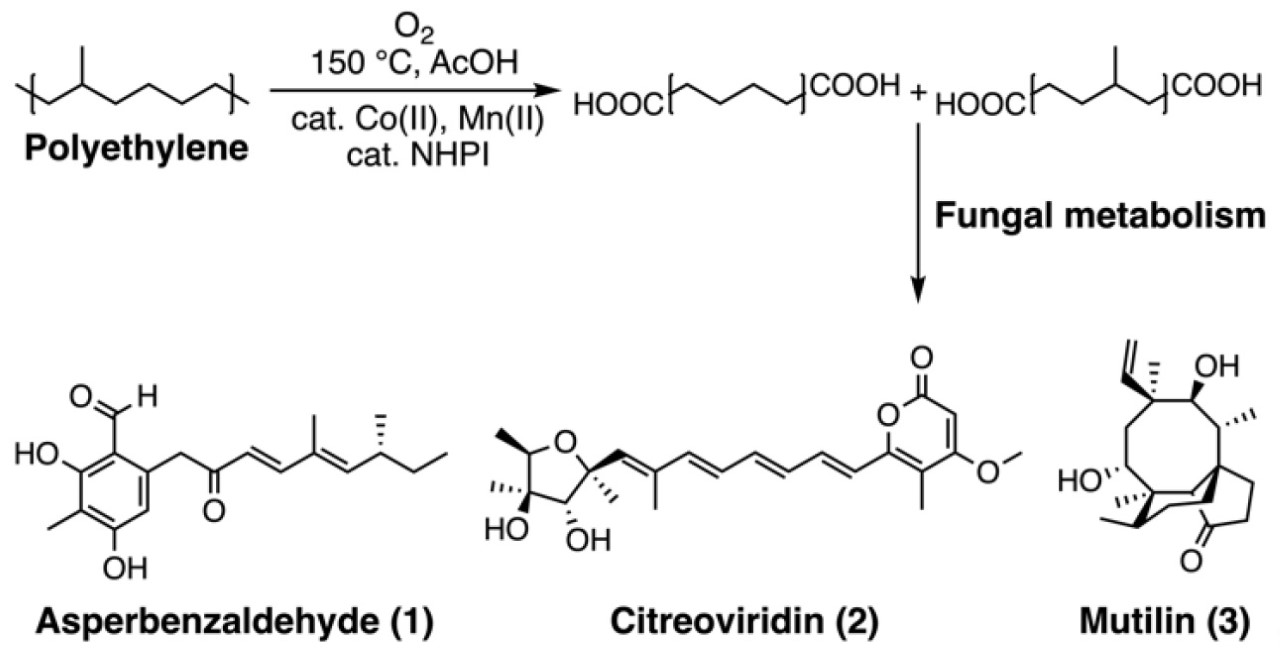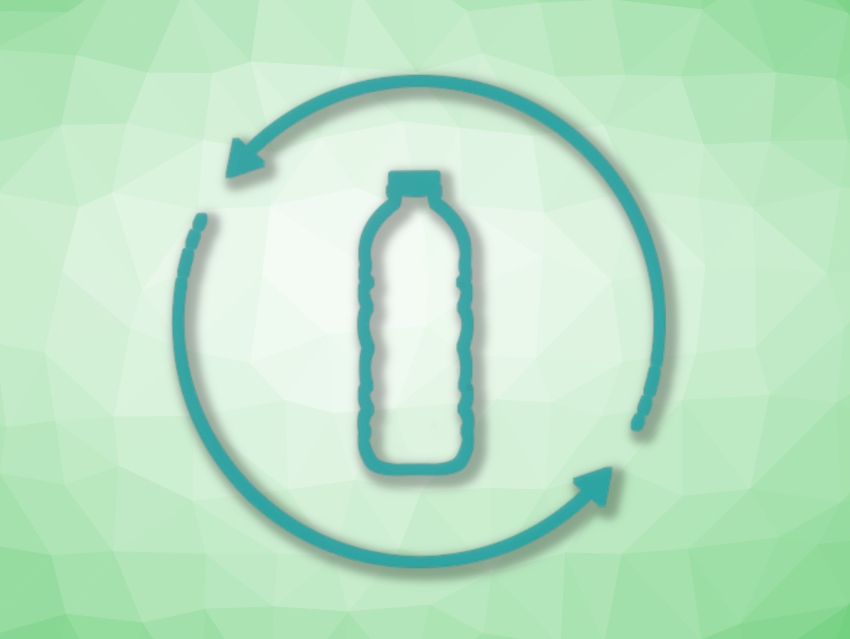Despite their many benefits, plastics are among the most problematic waste streams that society has to manage. While many studies focus on replacing or degrading plastics, a limited number of strategies are available for upcycling plastics into substances of higher value.
Clay Wang, University of Southern California, Los Angeles, USA, and colleagues have combined chemical catalysis with fungal biosynthesis to rapidly convert polyethylenes into structurally complex and pharmacologically active compounds. The team collected post-consumer waste that contained a high proportion of polyethylenes. The polyethylenes were then converted into carboxylic diacids using oxygen, cobalt and manganese salts, and N-hydroxyphthalimide (NHPI) as an NO source.

The researchers developed genetically engineered Aspergillus nidulans strains that can produce high quantities of fungal natural products. The fungi metabolized the diacids to produce medically valuable secondary metabolites, including asperbenzaldehyde, citreoviridin, and mutilin (pictured above).
The polyethylenes were converted into fungal natural products in high yields within one week. According to the researchers, this hybrid approach could also be successful in the production of other fungal fermentation products from polyethylene-derived substrates.
- Conversion of Polyethylenes into Fungal Secondary Metabolites,
Christian Rabot, Yuhao Chen, Swati Bijlani, Yi-Ming Chiang, C. Elizabeth Oakley, Berl R. Oakley, Travis J. Williams, Clay C. C. Wang,
Angew. Chem. Int. Ed. 2022.
https://doi.org/10.1002/anie.202214609


